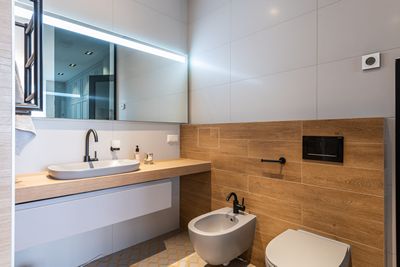
How much do you need to buy a house in Singapore? This is a subject that is not often discussed and the younger generation is left to find out on their own.
Millennials have been fed a lot of myths about property investment and home ownership. Some of these advice are shared in good faith by some members of the older generation.
However, they fail to take into consideration that life is very different now and maybe advice that worked in the past no longer work.
Others are from advertisements by education companies which we see on Youtube and Facebook. And, at times, these businesses may not have the best interest of consumers in mind.
I recently chatted with CEO of International Property Advisor Ku Swee Yong 邱瑞榮 and found him to be data-driven, a straight talker, and experienced in his field.
I invited him to join me in a live session to share his perspective to Millennials on a Tuesday evening.
Our live video was widely shared among many young adults. Thus, I decided to summarize his points into a blog entry. Should you wish to hear a deeper explanation of these points, please kindly refer to the recording of our Youtube video.
I will be doing regular live videos interviewing experts in the various fields moving forward and you can subscribe to my channel to be notified.
Table of Contents
1) How much do you need to buy a HDB or Condo in Singapore?
Ku Swee Yong advises that Millennials should have at least 60% of their house cost in CPF OA and cash.
This means that if you choose to get a $500,000 flat, you and your partner need to have at least $300k in cash and CPF OA combined.
Or, if one chooses to buy a $1 million condominium in the central, they should have $600,000 in CPF OA and Cash Combined.
His rationale? Doing so will empower Millennials with the ability to walk away when they encounter a toxic workplace or boss, without worrying about having too big a mortgage to service.
He also recognize that jobs are less stable these days due to technological disruption and the rise of the gig economy. Hence, he advocates having such a huge buffer to protect young adults from being in a financially stretched position.
2) Supply of flats may outstrip demand
Many Singaporeans view their prized HDB flat as an asset whose value must appreciate, and make plans accordingly. This is not necessarily the wisest decision with a rapidly ageing population, where an increasing number of baby boomers will die as they age and add a significant supply of old resale flats to the market.
The supply demand gap could worsen as there is an oversupply of housing options in the pipeline. In the last 5 years , there were about 200,000 added to the housing unit. In actual fact, there is only a requirement of about 100,000 units.
Given that there is a situation where demand < supply, Ku Swee Yong wonders if this could result in a decline in HDB resale prices.
Unlike our parent’s generation, where huge amounts of wealth were generated across the entire population from the spoils of property ownership, the matured market will not see growth spurts like before. Our generation and the generation after us should be happy with slow and steady growth.
Ku Swee Yong
3) Should Millennials invest in private property for rental income?
Should millennials buy private property to earn passive rental income? This may not be the wisest choice given that the number of jobs available are declining.
Even before Covid-19 pandemic, there has been a decline in number of employment pass holders coming to Singapore
While there was an overall increase in population numbers, The bump in non-residents was mainly due to an increase in work permit holders, driven by growth in the services sector and a turnaround in the construction industry.
He ended off the segment reminding us that real estate is an operating asset, not for passive income.
There are a lot more points covered in this video such as
- Given the bad economy, why is the property index is still on the uptrend?
- What are his thoughts on freehold property prices? Will freehold property prices drop? What circumstances?
- National Development Minister Desmond Lee, in an interview with Lianhe Zaobao, acknowledged the lottery effect of HDB flats located within prime areas, which may lead to a “likely windfall” for those who chose to resell their Build-to-Order (BTO) flats. How can the government mitigate the lottery effect of HDB flats in prime areas?
Find out the answers to the above questions in the youtube video here: https://www.youtube.com/watch?v=E8ujVvbTsRY
If you enjoyed these insights, do follow Ku Swee Yong on his Telegram group here.